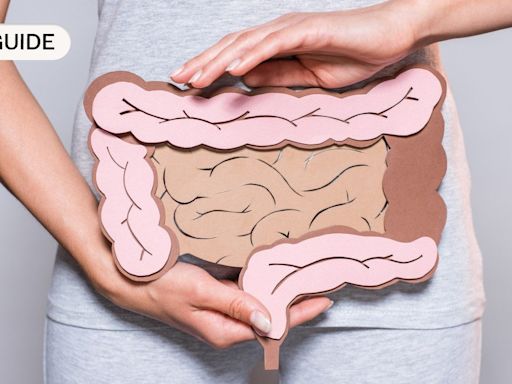Ads
related to: Can a colonoscopy find colorectal cancer early?Schedule an Appointment Today with a Colon Cancer Specialist In-Person or Virtually. Access Expert Specialists, Patient Support Programs, & Latest Advances in Cancer Research.
- Colon Cancer Symptoms
Learn More About the Early Symptoms
& Stages of This Disease.
- Colon Cancer Signs
Learn More About the Early Warning
Signs & Treatments Available.
- Rectal Cancer
Access Our Free Guide to Learn
More About the Treatment Options.
- Colon Cancer Diagnosis
Colon & Rectal Cancer Diagnosis
Access the Guide to Learn More
- Colon Cancer Symptoms
Subspecialists Determining Treatment For Your Specific, Individual Colon Cancer. National leaders in colon cancer surgery, research and patient care.
Search results
- Screening is crucial for cancer detection because most colorectal cancers don’t cause symptoms in the early stages. Many times, doctors first spot colon cancer during a routine screening colonoscopy.
www.hopkinsmedicine.org › health › conditions-and-diseasesColon Cancer: Diagnosis and Staging | Johns Hopkins Medicine
People also ask
Should I get a colonoscopy If I have colon cancer?
Is a colonoscopy a screening test for colorectal cancer?
How is colorectal cancer diagnosed?
Screening can often find colorectal cancer early, when it’s small, hasn’t spread, and might be easier to treat. Regular screening can even prevent colorectal cancer. A polyp can take as many as 10 to 15 years to develop into cancer. With screening, doctors can find and remove polyps before they have the chance to turn into cancer.
Oct 5, 2023 · Screening tests can also find colorectal cancer early, when treatment works best. Screening recommendations. The US Preventive Services Task Force (Task Force) recommends that adults age 45 to 75 be screened for colorectal cancer. The decision to be screened between ages 76 and 85 should be made on an individual basis.
Dec 6, 2022 · By Mayo Clinic Staff. If your doctor has recommended colon cancer screening, you might be able to choose from various colon cancer screening tests. If you're reluctant to make a decision, remember that any discomfort or embarrassment from colon cancer screening is temporary — and detecting problems early could save your life.
- Overview
- Symptoms
- Causes
- Risk Factors
- Prevention
Colon cancer is a growth of cells that begins in a part of the large intestine called the colon. The colon is the first and longest part of the large intestine. The large intestine is the last part of the digestive system. The digestive system breaks down food for the body to use. Colon cancer typically affects older adults, though it can happen at...
Many people with colon cancer don't have symptoms at first. When symptoms appear, they'll likely depend on the cancer's size and where it is in the large intestine. Symptoms of colon cancer can include: 1. A change in bowel habits, such as more frequent diarrhea or constipation. 2. Rectal bleeding or blood in the stool. 3. Ongoing discomfort in the...
Doctors aren't certain what causes most colon cancers. Colon cancer happens when cells in the colon develop changes in their DNA. A cells' DNA holds the instructions that tell the cell what to do. The changes tell the cells to multiply quickly. The changes let the cells continue living when healthy cells die as part of their natural lifecycle. This...
Factors that may increase the risk of colon cancer include: 1. Older age.Colon cancer can happen at any age. But most people with colon cancer are older than 50. The numbers of people younger than 50 who have colon cancer has been growing. Doctors don't know why. 2. Black race.Black people in the United States have a greater risk of colon cancer th...
Screening for colon cancer
Doctors recommend that people with an average risk of colon cancer consider starting colon cancer screening around age 45. But people with an increased risk should think about starting screening sooner. People with an increased risk include those with a family history of colon cancer. There are several different tests that are used for colon cancer screening. Talk about your options with your health care team.
Lifestyle changes to reduce the risk of colon cancer
Making changes in everyday life can reduce the risk of colon cancer. To lower the risk of colon cancer: 1. Eat a variety of fruits, vegetables and whole grains.Fruits, vegetables and whole grains have vitamins, minerals, fiber and antioxidants, which may help prevent cancer. Choose a variety of fruits and vegetables so that you get a range of vitamins and nutrients. 2. Drink alcohol in moderation, if at all.If you choose to drink alcohol, limit the amount you drink to no more than one drink a...
Colon cancer prevention for people with a high risk
Some medicines can reduce the risk of colon polyps or colon cancer. For instance, some evidence links a reduced risk of polyps and colon cancer to regular use of aspirin or aspirin-like medicines. But it's not clear what dose and what length of time would be needed to reduce the risk of colon cancer. Taking aspirin daily has some risks, including ulcers and bleeding in the digestive system. These options are generally reserved for people with a high risk of colon cancer. There isn't enough ev...
Jul 27, 2023 · Diagnosis. Diagnosing colon cancer. Colonoscopy Enlarge image. Tests and procedures used for colon cancer diagnosis include: Using a scope to examine the inside of the colon. Colonoscopy uses a long, flexible and slender tube attached to a video camera and monitor to view the whole colon and rectum.
The major risk factors for colorectal cancer are older age and having certain inherited conditions (such as Lynch syndrome and familial adenomatous polyposis ), but several other factors have also been associated with increased risk, including a family history of the disease, excessive alcohol use, obesity, being physically inactive, cigarette s...
Ad
related to: Can a colonoscopy find colorectal cancer early?Schedule an Appointment Today with a Colon Cancer Specialist In-Person or Virtually. Access Expert Specialists, Patient Support Programs, & Latest Advances in Cancer Research.



